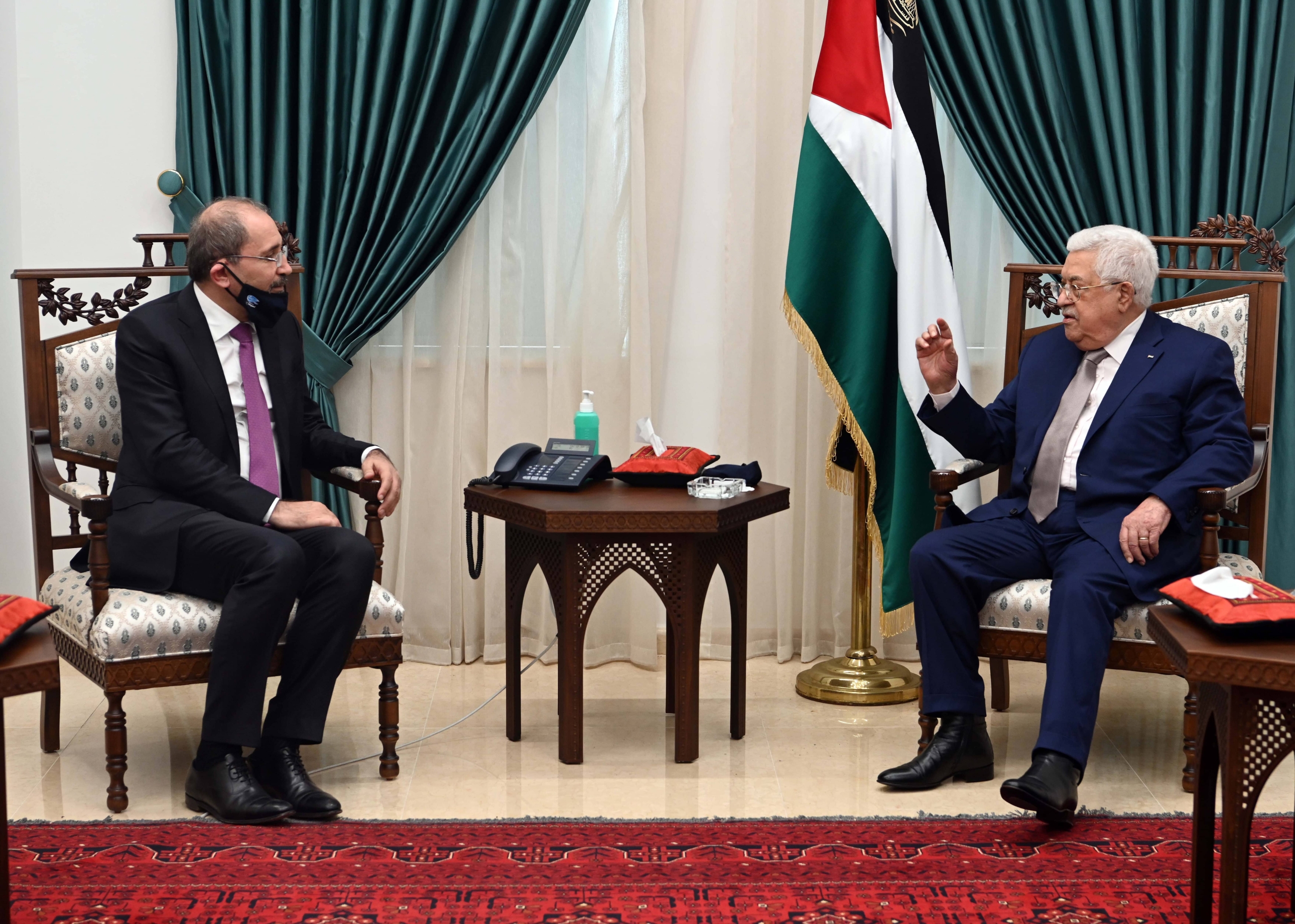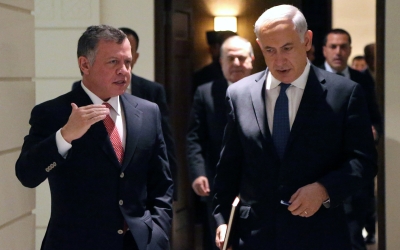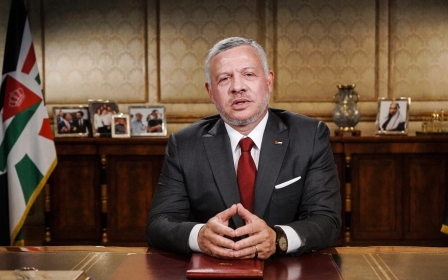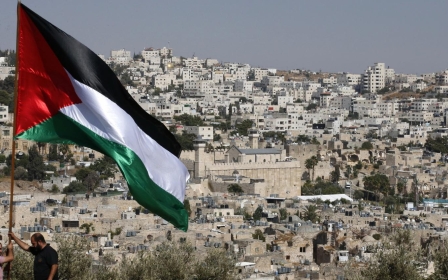Jordan says Israel is choosing 'conflict and escalation' with West Bank annexation

Jordan's foreign minister warned that Israel "will be choosing conflict and escalation" if it proceeds with plans to annex large parts of the occupied Palestinian territories next month.
During a meeting on Thursday with Palestinian President Mahmoud Abbas, Ayman Safadi said Israel will "have to deal with consequences - not just in its relationship with Jordan... it will also be harming regional efforts to achieve a just and comprehensive solution.
"Jordan will stand by the Palestinians and will use any means at its disposal to guarantee them rights," the foreign minister said, adding that annexation will "kill the two-state solution and all principles of a peace process."
Safadi's trip was part of efforts spearheaded by Amman against Israel's plans to annex illegal Jewish settlements in the occupied West Bank and the Jordan Valley, moves that have been greenlighted by the White House as part of President Donald Trump's controversial "deal of the century".
The Times of Israel reported last week that three large illegal settlements – Maale Adumim in occupied East Jerusalem, Ariel in the north of the West Bank, and Gush Etzion near the cities of Bethlehem and Hebron would be annexed on 1 July, with the Jordan Valley to be annexed in September.
Israeli officials told the newspaper that this "limited annexation" would be accepted by Prime Minister Benjamin Netanyahu's coalition partner, Benny Gantz, as well as by settler leaders who have expressed opposition to Trump's plan, which envisions a Palestinian political entity on portions of the West Bank not annexed by Israel.
The Palestinians have rejected the proposal and voiced outrage at Israel's proposed annexation.
Jordanian-Palestinian coordination
Israel's Channel 13 reported that during the visit, Safadi also told Abbas that he needed to speak directly with Trump in order to stop annexation.
The network said Jordan had made such appeals before but Abbas had refused, fearing Trump would leak the conversation and humiliate him. It was not known how he responded to today's request.
The Palestinian Authority cut ties with Washington in December 2017, when the White House announced it would recognise Jerusalem as the capital of Israel and relocated its embassy to the city.
Saeb Erekat, the secretary-general of the Palestine Liberation Organisation (PLO), said on Twitter late on Thursday that the Palestinian leadership and Jordan had come up with a coordinated approach that calls for a halt to annexation and for negotiations to resume on terms consistent with international agreements.
"Arab peace initiative, end the occupation, realising the independence of the state of Palestine with East Jerusalem as its capital, on the 1967 borders," he wrote on Twitter.
On Tuesday, Jordan's King Abdullah addressed senior members of the US Congress, urging them to stand with the US ally against annexation.
Abdullah reiterated the importance of "establishing an independent, sovereign and viable Palestinian state," a statement released by the royal court read.
Earlier this week, almost 50 UN human rights experts condemned Israel's annexation plan, calling it a vision of "21st Century apartheid".
"What would be left of the West Bank would be a Palestinian Bantustan, islands of disconnected land completely surrounded by Israel and with no territorial connection to the outside world," the experts said, referring to the territories set out for Black people by South Africa's apartheid regime.
Middle East Eye propose une couverture et une analyse indépendantes et incomparables du Moyen-Orient, de l’Afrique du Nord et d’autres régions du monde. Pour en savoir plus sur la reprise de ce contenu et les frais qui s’appliquent, veuillez remplir ce formulaire [en anglais]. Pour en savoir plus sur MEE, cliquez ici [en anglais].






